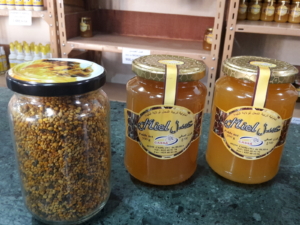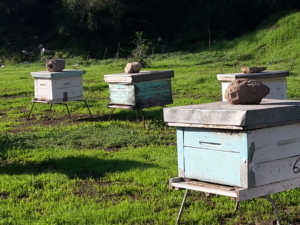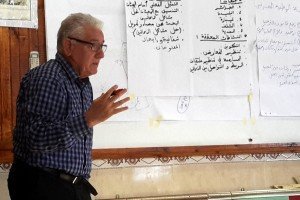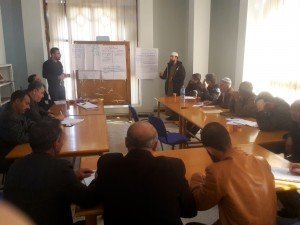The National Association of Professional Beekeepers (Anap) was created in 2016 with the objective of professionalizing a fast-growing sector, which today needs to structure itself around technical, regulatory and commercial reference frameworks.
Products and beehives of the cooperative of Cassa (Wilaya of Blida) partner of Anap within the framework of the Sfoap program
Beekeeping in Algeria is very old, but its growth accelerated very quickly from the 70s. The attractiveness of this supplementary source of income and an incentive policy of the Algerian State (more than 70 000 full hives subsidized since 1970) contributed to grow the number of beekeepers.
Today, beekeepers are very varied in their horizons, rarely from a traditional farming background, and are strongly marked by an entrepreneurial mindset. The weak state supervision, combined with this mindset led to many forms of spontaneous organization, in particular in the form of associations or groups of economic interest, which makes an exception in the Algerian agricultural sectors. This new dynamic and the high technical level of a fringe of professional beekeepers does not prevent from the emergence of a number of problems: the very heterogeneous quality of Algerian honey, the widespread of Varroa disease, the degradation of the genetic quality of bees by the uncontrolled import of bees, competition on the conventional market with imported honey and the absence of a legal framework recognizing quality, to name but a few problems.
Mohamed Hamzaoui, chairman of the beekeepers association of the Wilaya of Blida and chairman of the professional beekeepers association ANAP//Workshops on the identification of needs in services with the beekeepers of the western region Algerian






